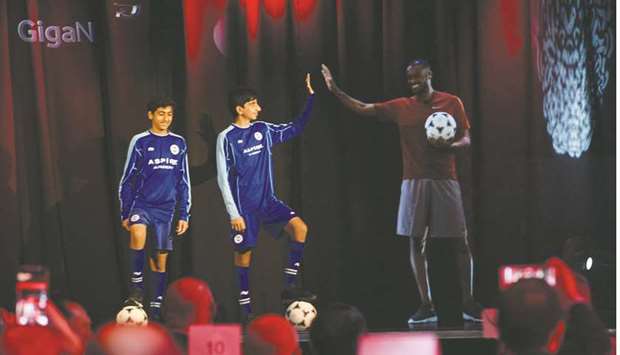After months of waiting, our favourite international sports stars are back on the field, and the 2019-20 QNB Stars League finally resumes on July 24. But with precautionary measures against Covid-19 still in place, it may be some time before fans return to the stadiums or are able to watch on a big screen with friends.
It’s not all bad news; leading telecommunications service providers are looking at ways to enhance the experience for those watching sports at home.
While traditional pay TV currently dominates the live sports arena, broadband rollout, improved internet speeds and high performing, video-capable devices have made live streaming and over-the-top (OTT) media services (that deliver content through an internet connection) increasingly popular.
Among the advantages of digital streaming platforms is access to more entertaining and interactive content such as player statistics, instant replays, different angle shots and live comments from other fans etc., at the tap of a button on an internet-connected device. This interactive content is available to the viewer as an overlay or in a side window while the live sports stream continues uninterrupted.
And in this space, 5G and live sports is a winning combination, says Vodafone Qatar. The telecommunications company is confident that the technology can open new dimensions for interactive sports content while we watch at home, and after Covid-19, power the digital transformation we’ve started seeing inside Qatar’s stadiums.
Vodafone’s GigaNet network including fibre and 5G is providing the connectivity for premium fixed services from ‘GigaHome’, powering data intensive services such as streaming, video on demand and OTT services. Vodafone currently partners with several leading OTT platforms to give its customers a wide array of on-demand content.
The capability of 5G to deliver high-speed, low latency communications has no better proof of concept than the broadcasting of high-quality, real-time video streaming.
Network limitations are one of the factors that have kept livestreaming back. While the common perception is that ‘live’ streamed content is the same as ‘real-time’, most streams suffer from latency, a delay from the broadcast feed, that lasts anywhere from 10 to 90 seconds, which can be crucial to a sports match.
For ultra-high-definition (UHD) video streaming, 5G networks can reliably send large video files with no detectable delays (latency) and no degradation to video quality transmitting at very high speeds (throughput). 5G has the bandwidth for sports fans to enjoy the definition and image clarity that is so important for a sense of realism when watching a game at home.
Several leading sports apps are taking advantage of 5G capabilities to incorporate augmented reality (AR) and virtual reality (VR) to let fans join the action on the field. Wearing a VR headset will let you enjoy lifelike immersive experiences on the couch: 360 degree VR content that lets you switch to the view of the goalkeeper or penalty scorer, or watch a holographic presenter doing live interviews.
Vodafone Qatar’s 5G holographic call with Abdulkarim Hassan last year saw the national team defender appear as a live 3D hologram sharing footballing advice with future athletes – a prime example of the new fan experiences created by technology.
With these capabilities, 5G has the potential to put the live thrill into the experience of in-home viewing, driving the continued growth of streaming and OTT services. Sports rights holders will gain opportunities to grow their revenue by offering premium experiences that were not possible before.
Of course, we can expect even more exciting applications for 5G inside the stadiums.
Since Vodafone Qatar started deploying its GigaNet 5G network, the country’s football spectators are seeing just why 5G is a game-changer for live events. In 2019, Vodafone brought thousands of football fans customised VR and AR experiences at their high-tech ‘Fan Zone’ at the Arabian Gulf Cup, and the country and the region’s first-ever live 5G and 360-broadcast.
Creating experiences that fans remember is a big part of the reputation that Qatar is building as a destination for hosting international sports events, along with seamless event management. Investing in 5G connectivity in stadiums can ensure more reliable communications between organisers, improved crowd safety through connected CCTV networks, and help athletes improve their training programmes.
Vodafone Qatar is leveraging its capabilities and smart digital expertise to make things better for people when they can’t go out to see the game. More innovations are still to come. At each stage, Vodafone Qatar will find ways to bring spectators new and enhanced experiences.

Vodafone Qatar’s 5G holographic call with Abdulkarim Hassan last year saw the national team defender appear as a live 3D hologram sharing footballing advice with future athletes.
